SDK Core Abstractions
Application Domain Language of the SDK
Rollbar Configuration
Here we describe core concepts and patterns used to configure the available SDK options.
Key Configuration Related Interfaces
IRollbarInfrastructureConfigIRollbarLoggerConfigI...Options
The Configs are composed of Options., i.e. have Options as their properties.
IRollbarInfrastructureConfig also includes the RollbarLoggerConfig property of IRollbarLoggerConfig type.
All of these interfaces (both the Configs and Options) are IReconfigurable and ITracable.
Most of the Options’ properties are Read-Only.
The primary way to modify either Config or Options objects exposed via the interfaces is by reconfiguring the objects based on provided similar prototype objects. Just call the Reconfigure(prototype) method on a Config or Options interface at hand.
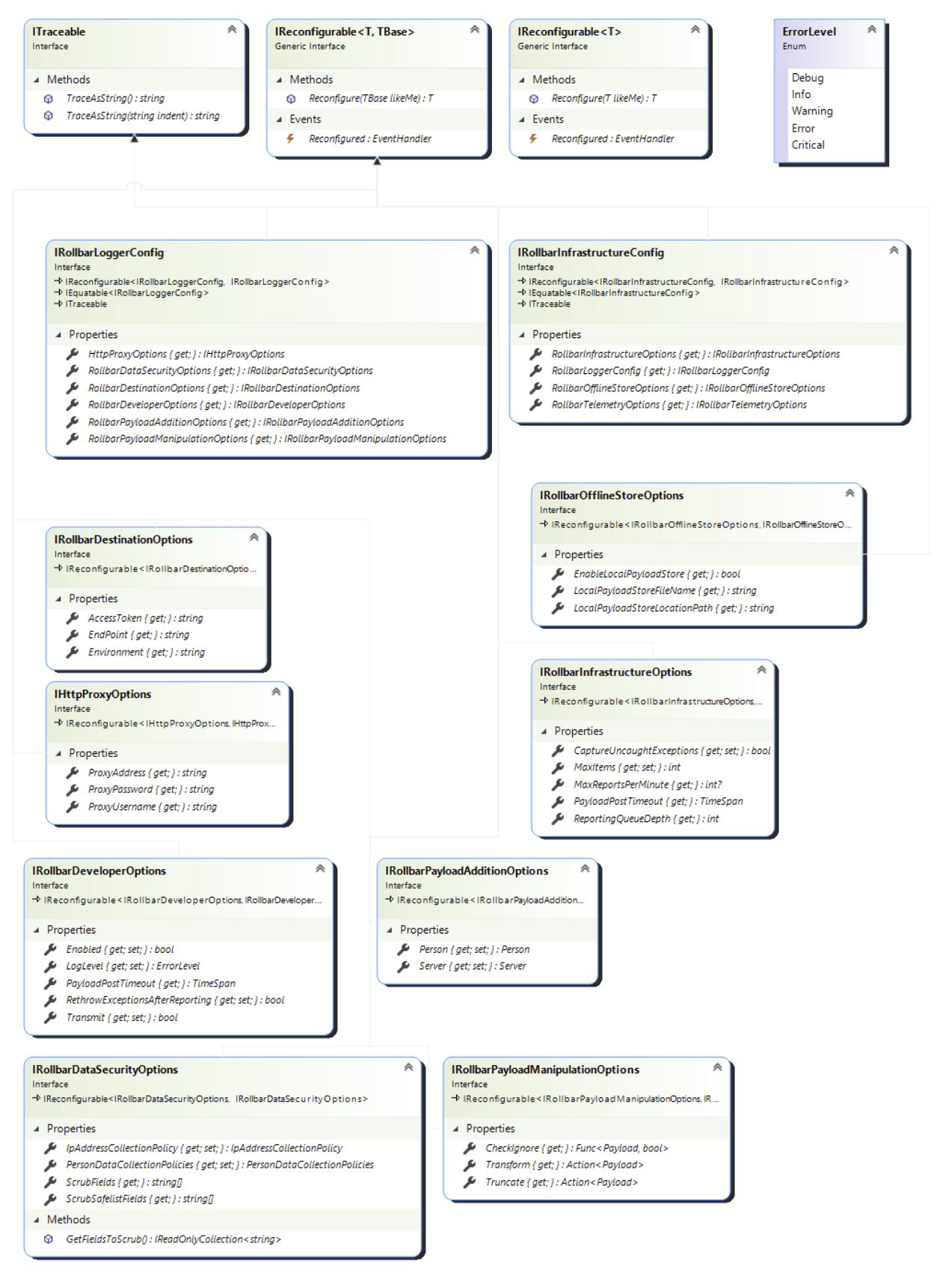
Key Configuration Related Classes
Every (primarily Read-Only) I...Config or I...Options has a Read-Write capable matching class implementing each interface (just remove I prefix from an interface name to get the corresponding implementing class name).
Normally, while using Configs and Options, you instantiate the needed class and either manually set all the desired properties on that instance or load it from an appropriate configuration file using proper IRollbarConfigurationLoader implementation (check out Rollbar.App.Config or/and RollbarAppSettings.Json modules).
Once the instance is properly configured/loaded as needed it can be used to reconfigure any existing configuration object exposed via the similar configuration interface by calling the Reconfigure(prototype) method on target configuration/options to be reconfigured based on the provided prototype configuration/options.
Rollbar Infrastructure
The RollbarInfrastructure abstraction is an optional (but recommended when it is possible to use it) concept that implements most of the payload composition, processing and delivery functionality of the SDK run on a dedicated background thread, so it offloads most of the work done by the SDK from the client threads calling IRollbar and ILogger methods (i.e. the logging methods) of the SDK.
The main reason for this abstraction to be optional is that some runtime environments may not allow/support background thread creation/processing. For example, browser-side Blazor implementation as it stands today.
To take advantage of this infrastructure while logging to Rollbar, just initialize the RollbarInfrastructure singleton with a valid configuration object before any first use of either RollbarLocator or RollbarFactory classes. Usually, you would want to do it as early as possible within your application process’s startup/load/initialization.
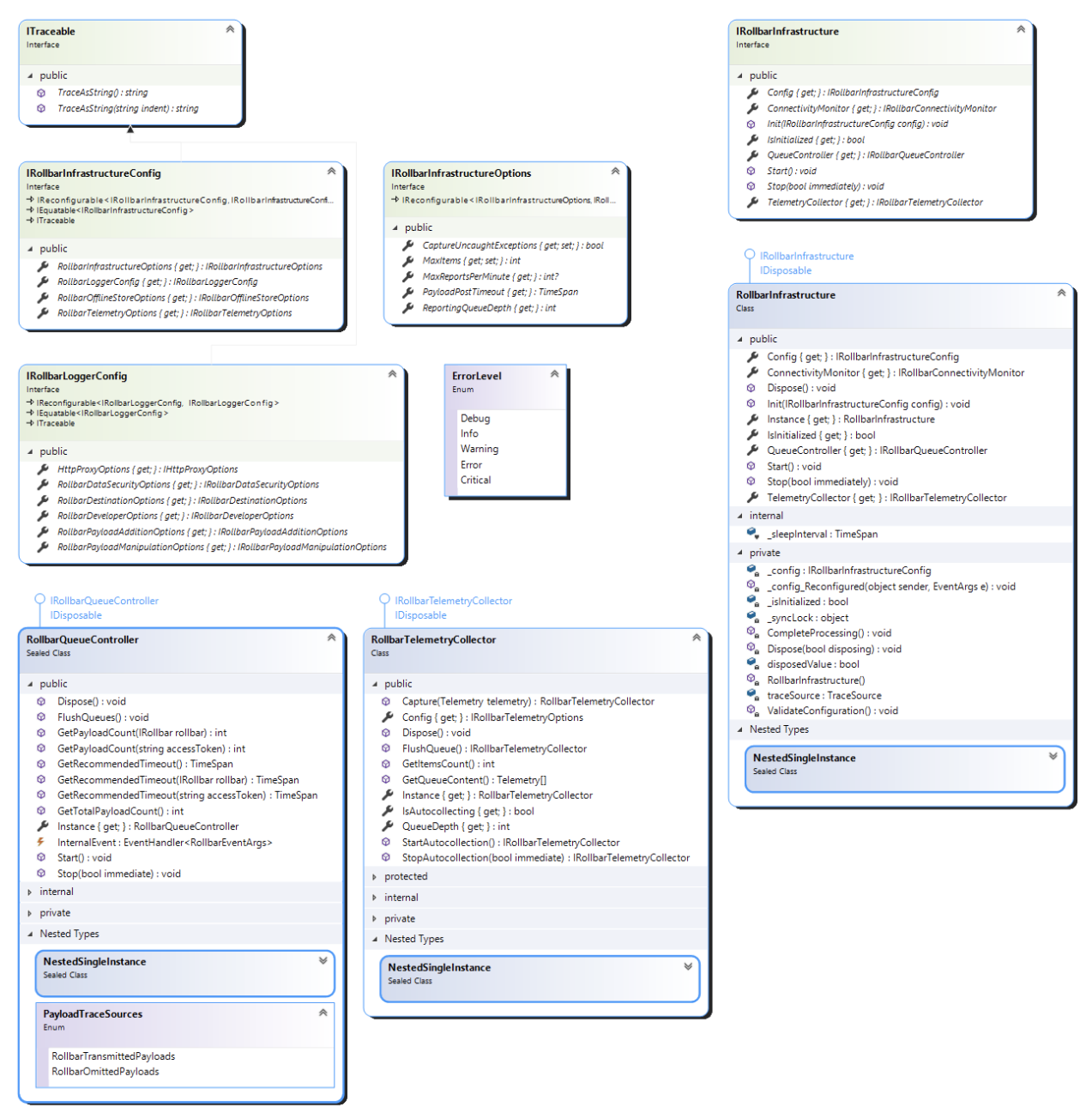
Rollbar Loggers
Rollbar loggers are used to collect and send logged data/events to a Project Dashboard allocated on Rollbar.com.
Key Interfaces
ILogger- interface for async and synchronous event/data loggingIRollbar- extendsILoggerwith Rollbar specific configuration and convenience methods, properties, and events.
Key Classes
RollbarLocator- a service-class/singleton providing application-wide access to the shared instance ofIRollbarimplementation;RollbarFactory- a utility class for creating disposableIRollbarimplementation instances as needed (usually, short-lived ones within the C#usingblocks).
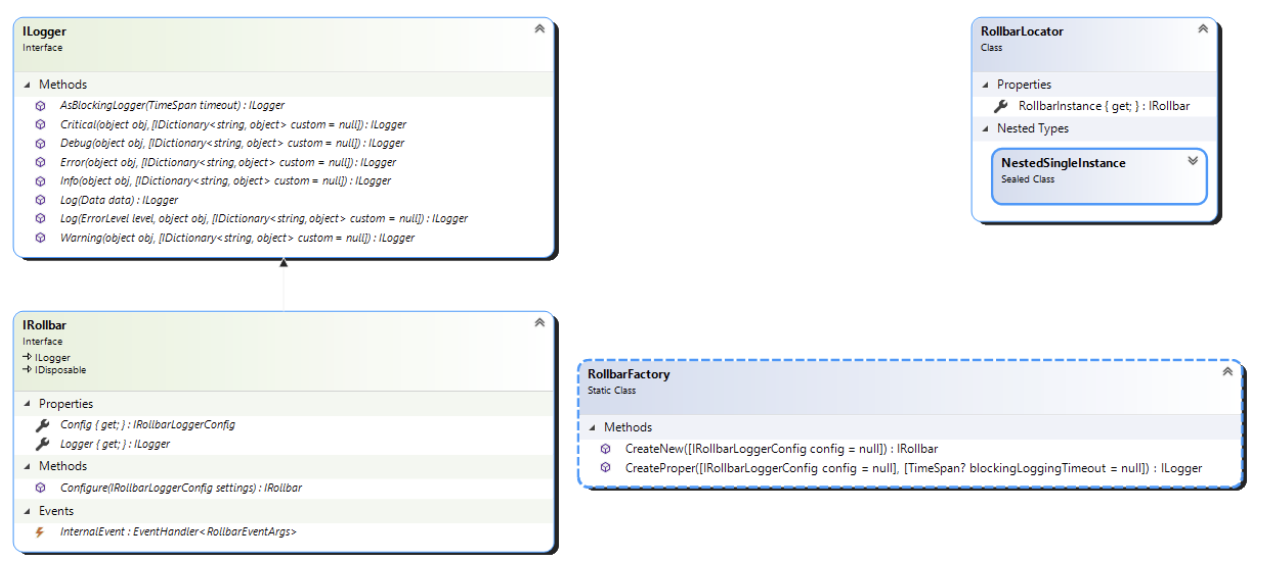
Rollbar Assistant
RollbarAssistant is a utility class providing convenient ways to capture arbitrary object’s property values into a key-value (i.e. PropertyName-PropertyValue) dictionary so that the dictionary can be attached as metadata for any SDK logging method.

Rollbar Packages and Package Decorators
You can think of the Packages as an abstraction that allows to capture and bundle up either specific or arbitrary objects and turn them into Rollbar payloads that could be sent to Rollbar.com. They also allow for a higher level of encapsulation and reuse of the functionality required to turn any data into a Rollbar payload. A package can also declare whether the packaged data can be captured later by the Rollbar infrastructure in the background or must be captured synchronously at the time when the package is passed into the IRollbar logging method.
Each package can be decorated with an infinite amount of package decorators (that are packages on their own). Each decorator is meant to add arbitrary extra data to a wrapped/decorated package and to have that data appended to the same corresponding payload.
The decorators are applied in the same order they were added to/around the original package.
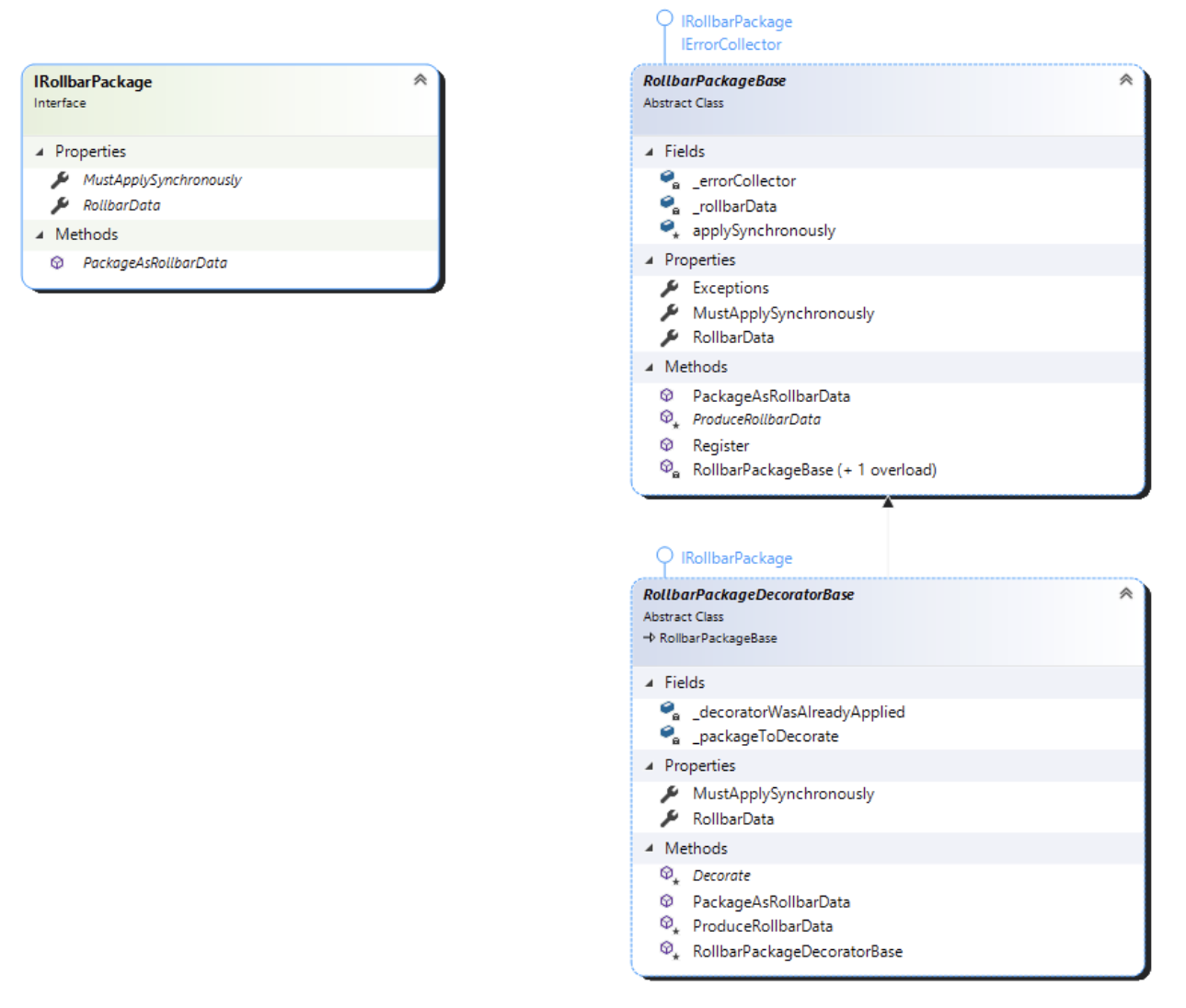
Currently, the core Rollbar module of the SDK defines the following packages:
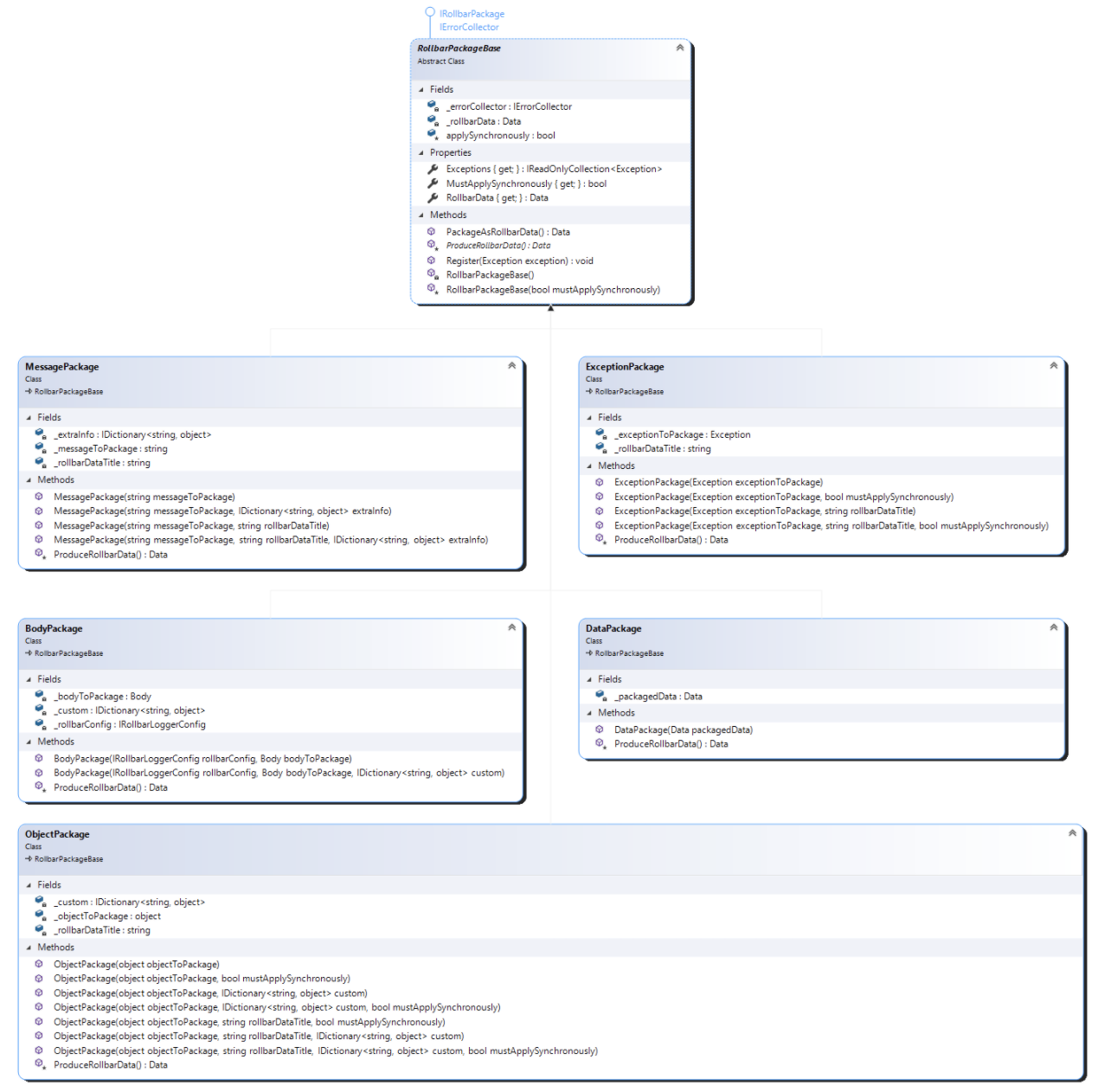
Other SDK modules may define additional packages, or you can create your own custom ones.
Here are some of the package decorators defined within the core Rollbar module:
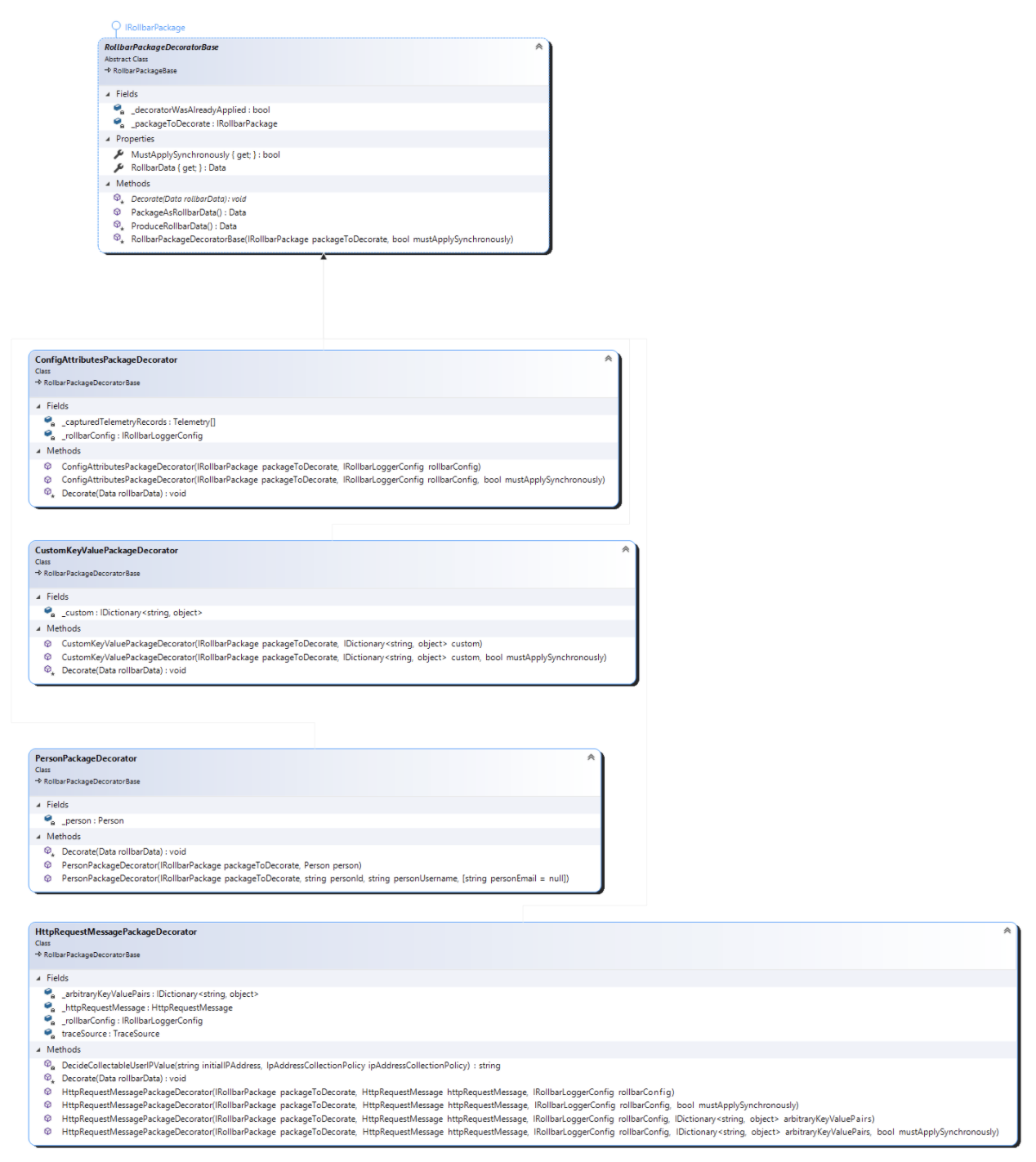
Other SDK modules define a lot of other applicable decorators, and you can always create your own custom package decorators.
Rollbar Internal Events
Being a developer tool, the SDK should not be bringing down an application that is hosting the SDK in case anything goes wrong for any reason inside the SDK. So, we are doing everything possible to safely intercept and handle all the SDK internal exceptions if any. Such exceptions are turned into what we call SDK Internal Events. We also report significant internal operation events of the SDK as similar Internal Events.
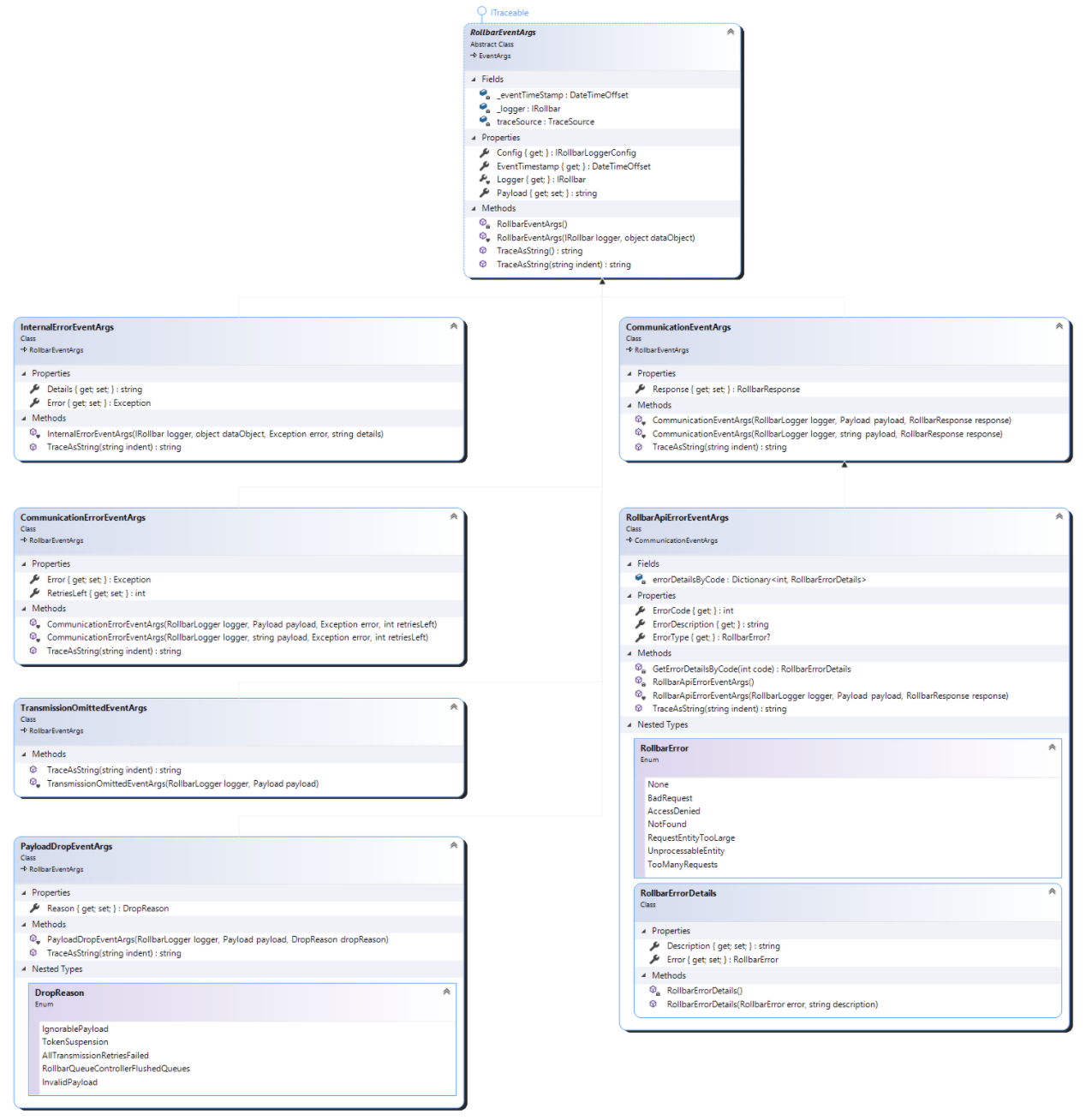
Every individual IRollbar instance offers a subscription to the Internal Event (via C# InternalEvent event).
Similarly, all the events from any IRollbar instance, as well as Infrastructure specific Internal Events, are reported as InternalEvent of the RollbarInfrastructure.Instance.QueueController singleton.
Rollbar Exceptions
In cases when an internal error happens and we cannot gracefully recover from it, such an error will be reported as a RollbarException.
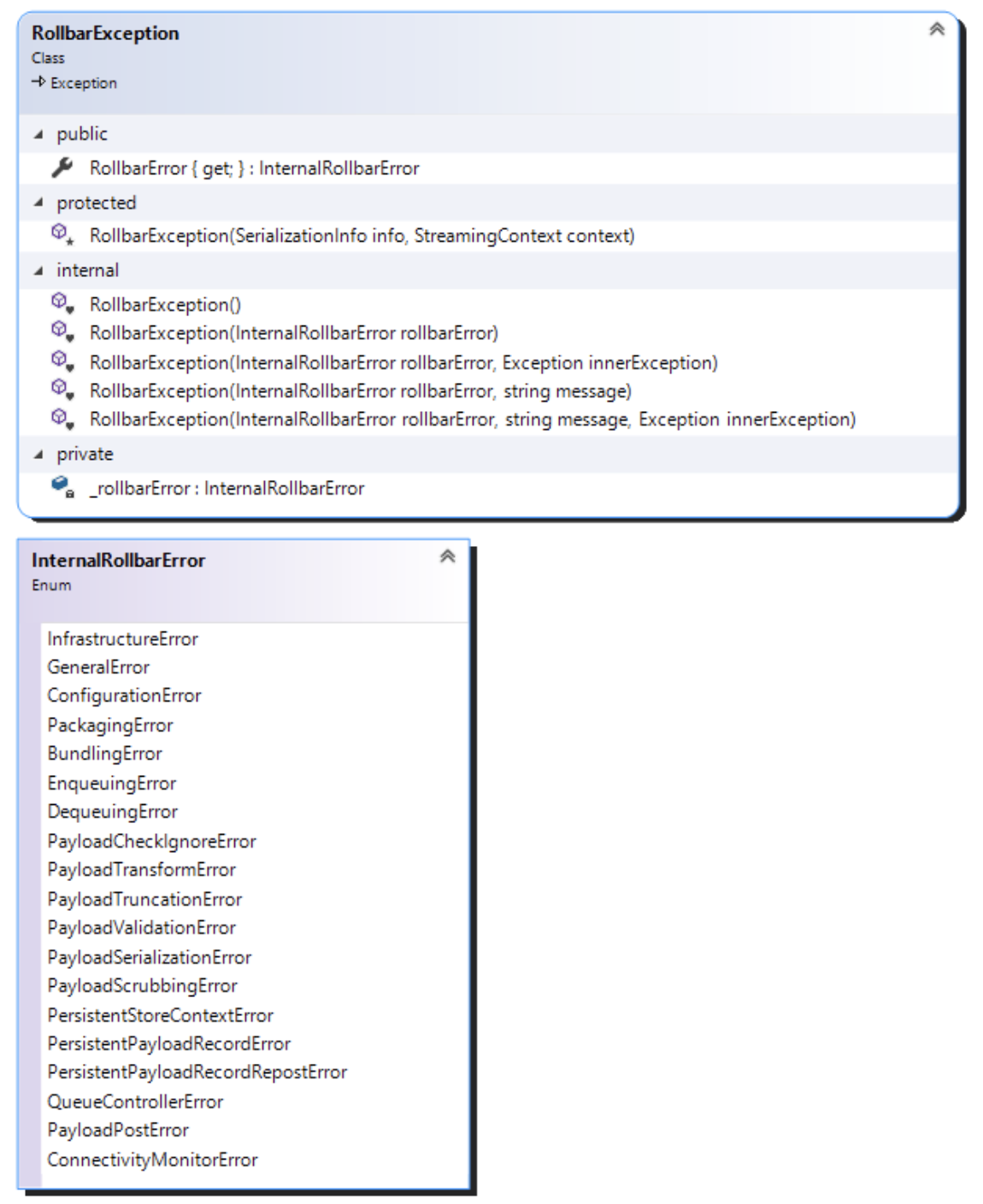
Updated about 2 years ago